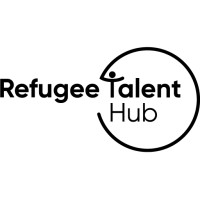About the host

Refugee Talent Hub
Batsheba White and Pegy Ibrahim
Batsheba White is a Sr. Account manager at Refugee Talent Hub, responsible for knowledge sharing and advisory, amongst other things. “With unstoppable enthusiasm and energy I try to create an equal playing field for all refugees who want to work in the Netherlands, in collaboration with our involved and committed partners.”
Pegy Ibrahim is a Researcher at Refugee Talent Hub. “Creating better understanding of refugee talents in the workforce through empirical research and reflecting upon it through personal experiences. With the hope to create an inclusive work environment where all are recognized for the personal value they bring.”


